Về chúng tôi
ISOTHANE Bio TPU Q&A
- Nêu rõ về sự thúc đẩy và mở rộng keo nước PU
- So sánh sự khác nhau giữa keo nước PU và keo dầu PU.
- Sử dụng keo nước PU phải đổi mới thiết bị và đào tạo nhân viên
- Những việc cần chú ý khi lưu trữ keo nước PU
- Thao tác sản xuất của keo nước PU
- ISOPAK LFRT Q&A
- ISOTHANE Bio TPU Q&A
-
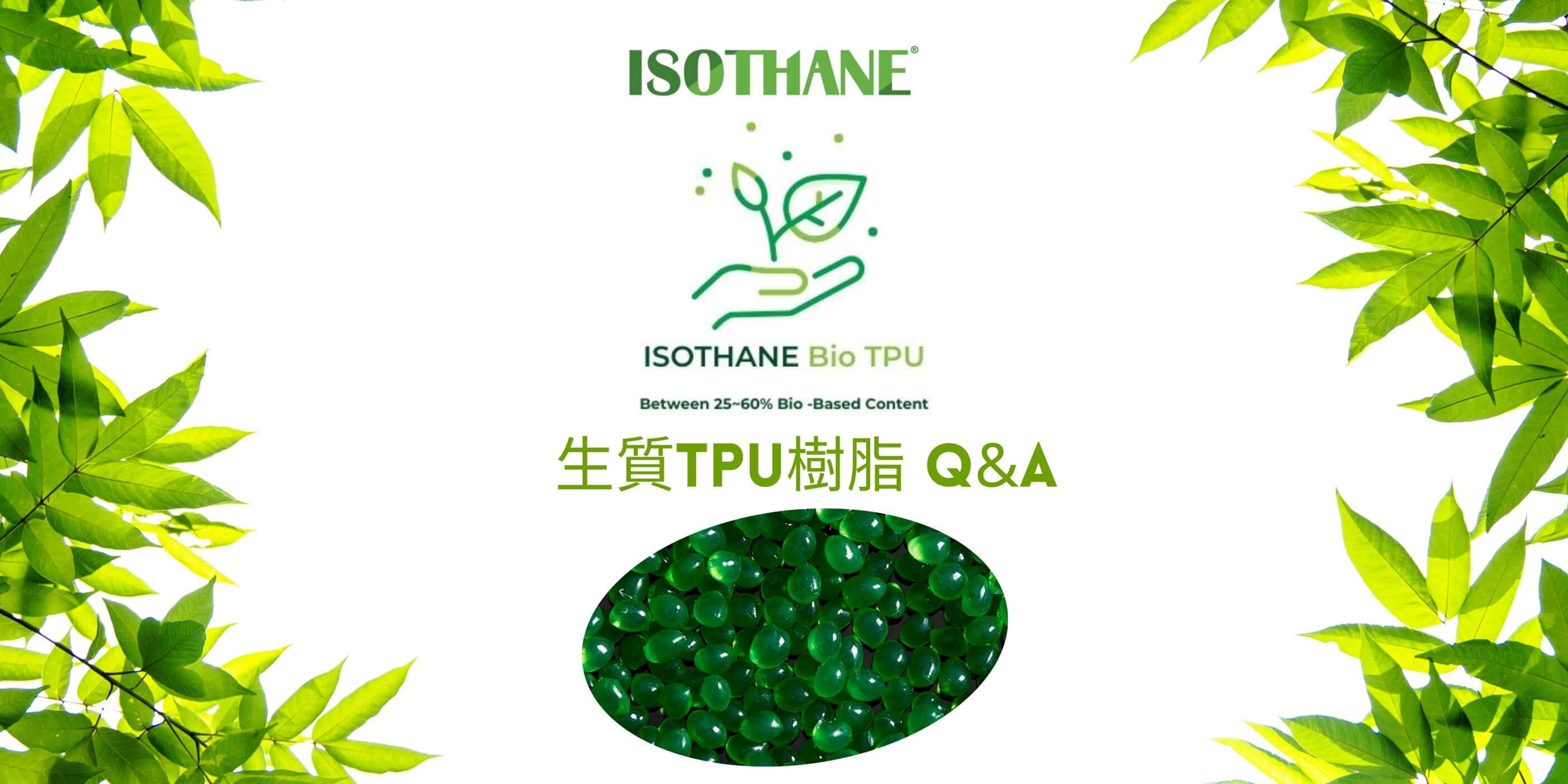
Bio TPU resin is an innovative bio-based thermoplastic polyurethane (TPU) material, and the following are the frequently asked questions about Bio TPU:
-
What is Bio TPU?
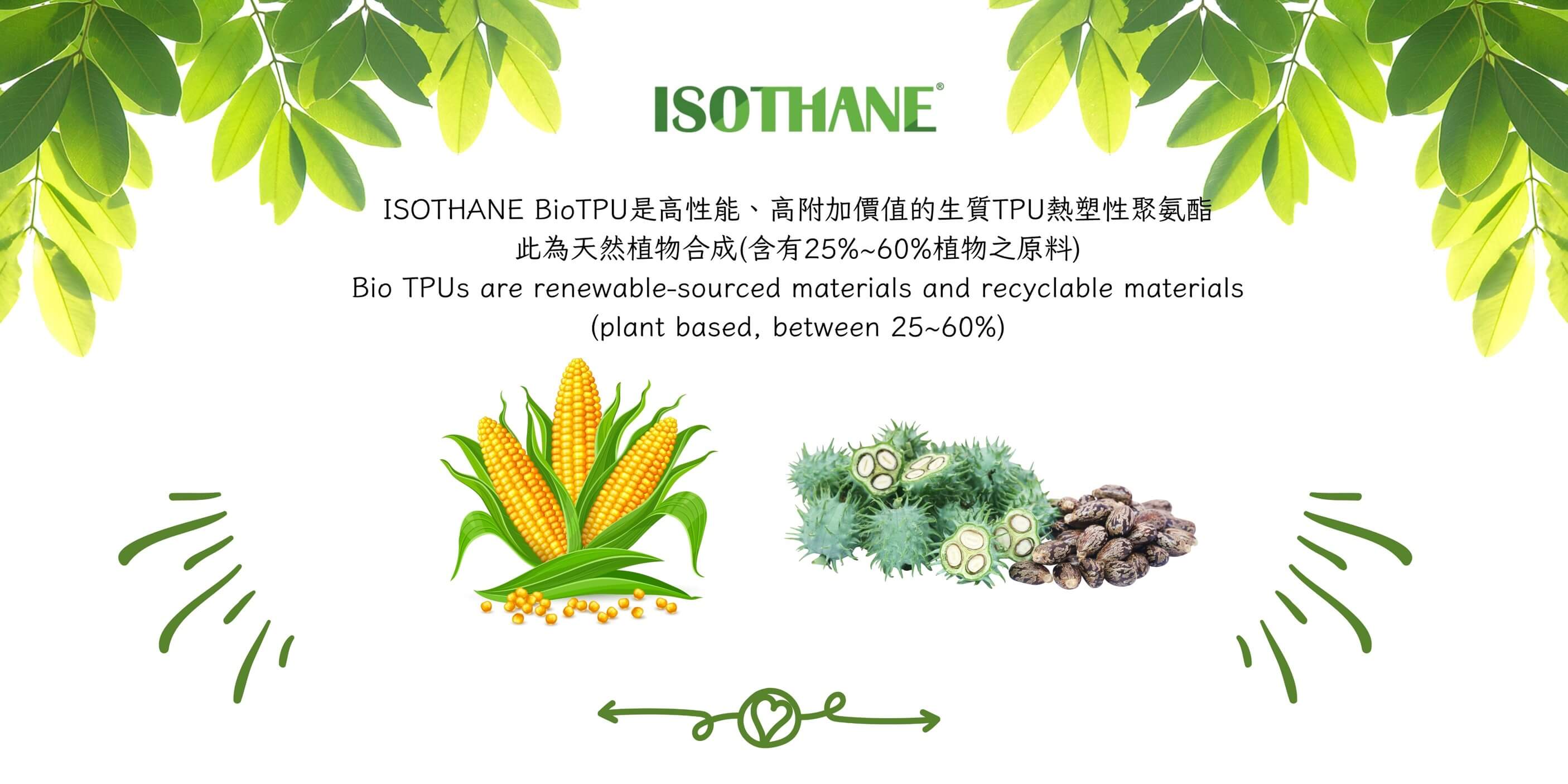
Bio-based materials refer to the use of biological materials as raw materials or materials obtained through biological manufacturing, such as corn, wheat, flour, or castor oil, etc., from biological raw materials to obtain alcohols, acids, alkanes and other chemicals, and then synthesize.
ISOTHANE Bio TPU is a high-performance, high-value-added Bio TPU thermoplastic polyurethane, which is a natural plant synthesis (plant based, between 25~60%), its biomass content can be customized according to customer needs, manufacturing raw material sources, from two major systems: corn and castor oil, is a sustainable resource that can replace petrochemical-based raw materials.
-
What is bio-based content?
According to ASTM D6866, the bio-based content of a product is determined by its organic carbon content, not its weight. Bio-based percentage content ("bio-based percentage" or "bio-based content"). This is the relative value of the carbon content in a product derived from a bio-based material to the total carbon content of the product as a whole.
-
What are the performance characteristics of Bio TPU?
The performance and benefits of ISOTHANE Bio TPU are comparable to those of traditional petroleum-based TPUs. It has superior toughness, mechanical strength, abrasion resistance, solvent resistance, UV resistance and hydrolysis resistance, etc.
-
In Which application is Bio TPU commonly used?
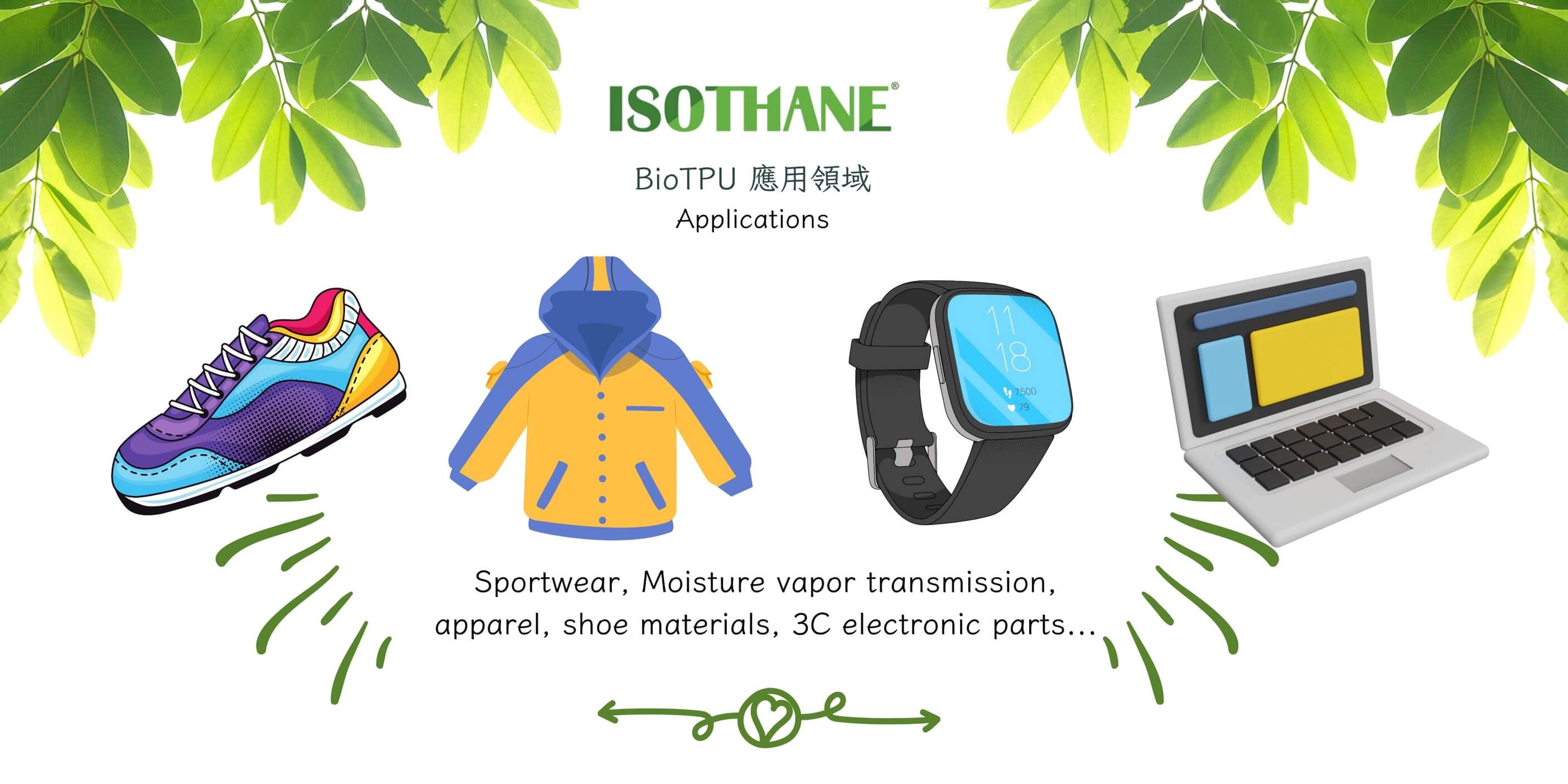
Sporting goods industry, smart wearables, shoe materials/footwear, auto parts, 3C/notebook peripheral parts, textiles/fabrics, building materials/soft furniture, medical materials, etc.
It can be used in daily life to save energy, reduce carbon emissions and CO2 generation, and is suitable for injection, extrusion and blown film molding.
-
What is the hardness range of Bio TPU?
Bio TPU is available in hardness from 65 Shore A to 55 Shore D, with different biomass content, to meet the needs of different product applications.
-
Is Bio TPU recyclable?
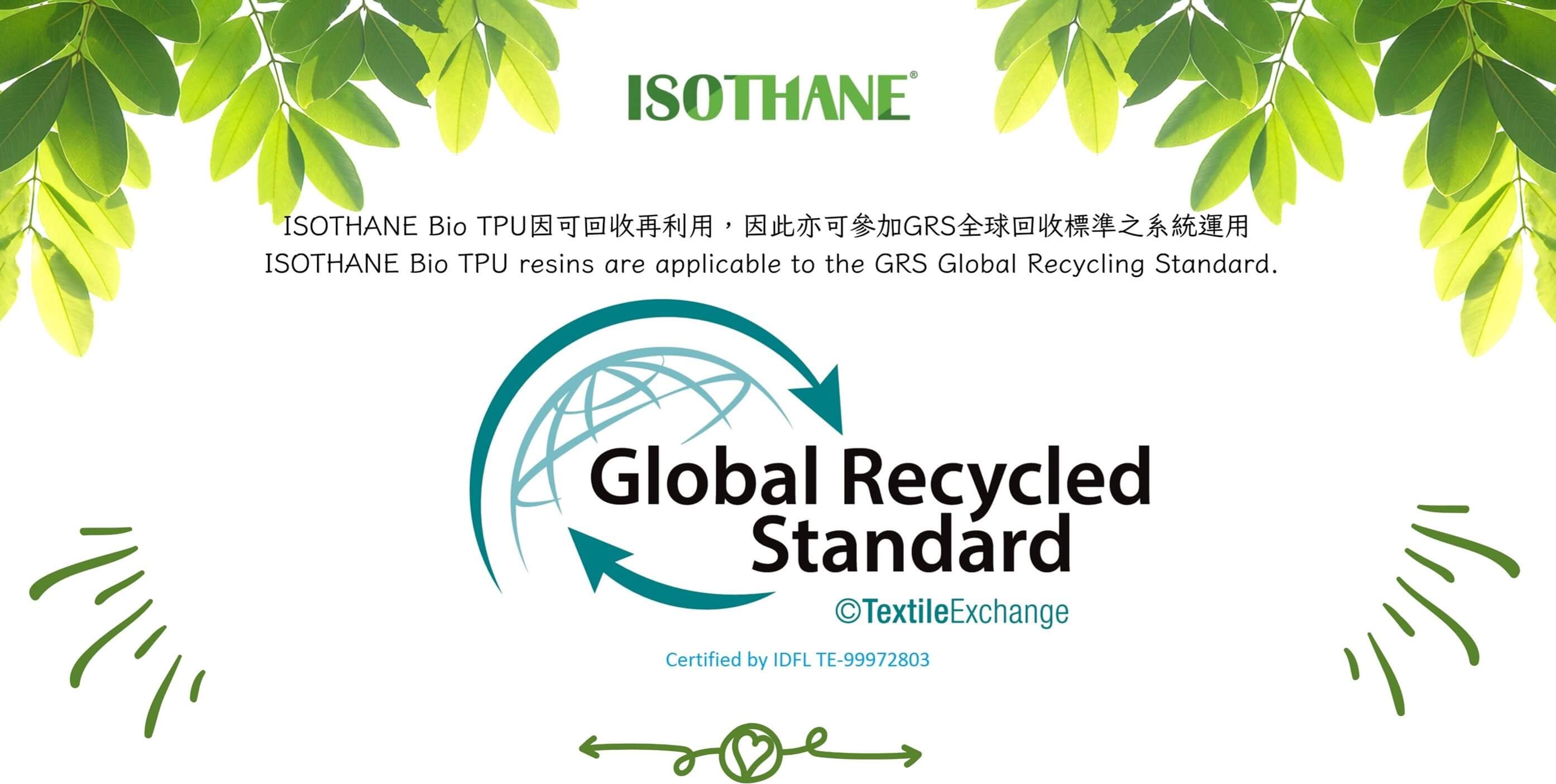
Yes, Bio TPU is a recyclable eco-friendly plastic that helps to build a green supply chain.
ISOTHANE Bio TPU resins are applicable to the GRS Global Recycling Standard.
-
Does Bio TPU offer transparency?
Yes, like petroleum-based TPU, Bio TPU also has a transparent appearance, but due to different sources, the color of Bio TPU will be slightly yellowish.
-
Can Bio TPU be used in hot melt adhesives?
Yes, there are recyclable bio TPU hot melt adhesive specifications, which are widely used for the lamination of shoe materials, textiles, etc., providing excellent fitting strength and elasticity.
-
What are the benefits of using bio-based materials?
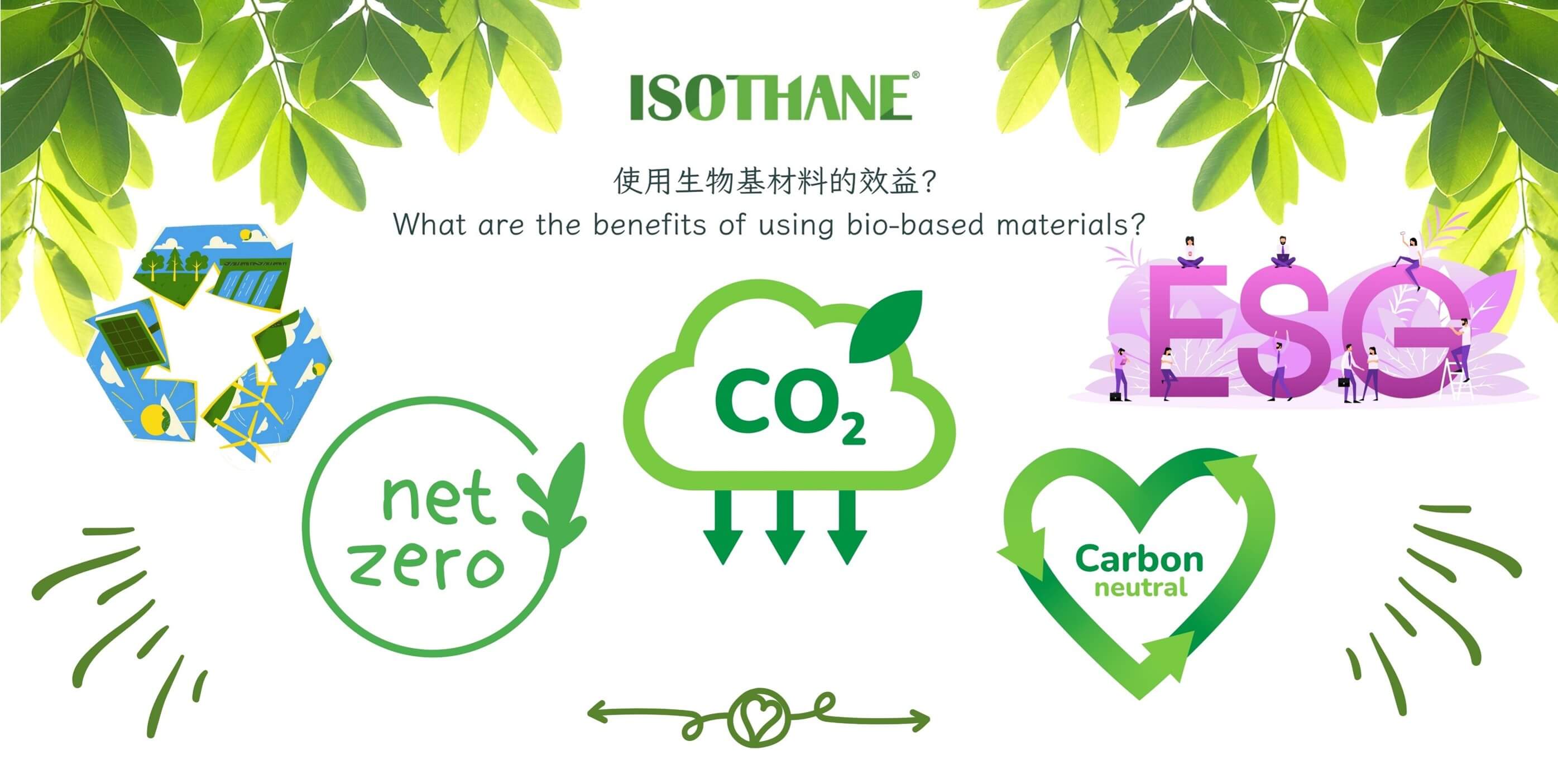
1. In terms of global trends, it can save energy, reduce carbon emissions, and achieve carbon neutrality. Bio-based materials are Eco-friendly plastics for sustainable development. According to the carbon emission data provided by bio raw material suppliers, compared with petroleum-based TPU, Bio TPU with 50% biomass content can reduce CO2 emissions by about 50% of products.
2. It can replace petroleum fuels and organic chemistry.
3. Improve corporate responsibility and image.
